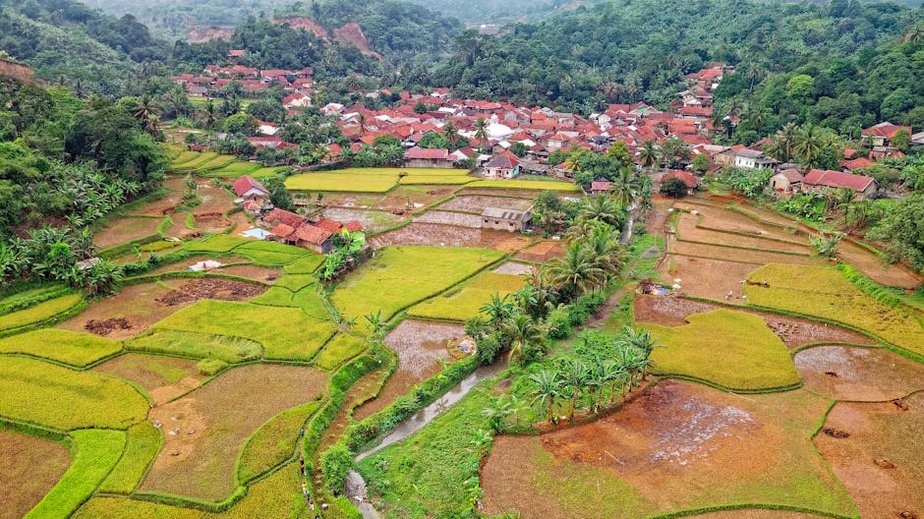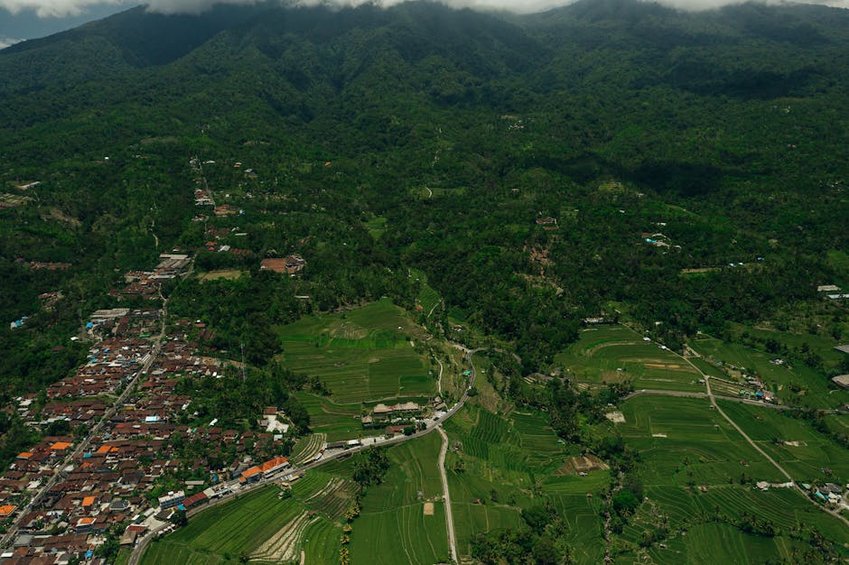Remote Rice Village Stay in Indonesia
Imagine waking up to the sound of roosters and the gentle rustle of rice paddies, far from the tourist crowds and city noise. A remote rice village stay in Indonesia offers one of the most authentic cultural experiences you can find in Southeast Asia. This immersive journey takes you into the heart of traditional Indonesian life, where ancient farming practices continue unchanged for generations and community bonds remain strong. You’ll discover a slower pace of life, breathtaking natural landscapes, and genuine hospitality that will transform your perspective on travel. Whether you’re seeking cultural immersion, photographic opportunities, or simply a digital detox, this unique experience provides something truly special that resort vacations simply cannot match. The memories you create during a remote rice village stay in Indonesia will stay with you long after you return home, offering insights into a way of life that balances tradition with modern challenges.
Remote Rice Village Stay in Indonesia – Essential Information
Before embarking on your rural Indonesian adventure, understanding the basic framework of these village stays will help you prepare properly. Most remote rice village accommodations are simple family homestays rather than commercial hotels, meaning you’ll be living with local families and participating in their daily routines. These experiences are typically found in Bali, Java, Lombok, and Flores, with each island offering distinct cultural traditions and agricultural practices. The accommodations range from basic bamboo huts to more comfortable traditional houses, but don’t expect luxury amenities – the real value lies in the cultural exchange and authentic experience. You’ll need to approach this adventure with flexibility, openness, and respect for local customs, as you’re essentially entering someone’s home and community rather than checking into a standardized tourist facility.
What You Need to Know – Preparation Essentials
- Visa requirements: Most Western passport holders (US, EU, UK, Australia, Canada) receive 30-day visa-free entry, but check current regulations as policies occasionally change
- Health considerations: Consult your doctor about malaria prophylaxis and ensure routine vaccinations are updated; bring mosquito repellent and basic medical supplies
- Cultural respect: Dress modestly, learn basic Indonesian phrases (terima kasih for thank you, selamat pagi for good morning), and always ask permission before photographing people
- Connectivity: Expect limited or no internet access in truly remote villages; inform family/friends about your limited connectivity in advance
- Budget option ($25-40/night): Basic homestay including meals, simple accommodation with shared bathroom, arranged through local community tourism groups
- Mid-range option ($50-80/night): More comfortable traditional house with private bathroom, additional cultural activities like cooking classes or guided village tours
- Luxury option ($100-150/night): Eco-lodges near villages with upgraded amenities while maintaining authentic experiences, often including transportation and specialized guides
- Indonesia Tourism Official Website
- Responsible Travel Guidelines for Village Stays
Key Details – What Makes This Experience Unique
The magic of a remote rice village stay lies in its authenticity and the depth of cultural immersion it provides. Unlike tourist-oriented experiences, you’re participating in real village life – waking with the sun, helping with rice planting or harvesting if visiting during agricultural seasons, sharing meals with families, and learning about centuries-old traditions directly from community members. The rhythm of life follows natural cycles rather than schedules, offering a profound sense of connection to the environment and local culture. You’ll witness incredible craftsmanship, from traditional weaving to bamboo construction, and gain appreciation for sustainable living practices that have supported these communities for generations. This isn’t just accommodation; it’s participation in a living culture.

Remote Rice Village Stay in Indonesia – Planning Your Trip
Successful planning transforms a good village experience into an unforgettable one. The timing of your visit significantly impacts what activities you can participate in, as rice farming follows specific seasonal patterns throughout the year. You’ll want to consider your comfort level with basic accommodations, physical ability for village activities, and personal interests when selecting both location and duration. Most visitors find 3-5 days ideal for a balanced experience – enough time to settle into village rhythms without becoming overwhelmed by the lack of modern comforts. Booking typically happens through specialized eco-tourism organizations or local guides rather than major booking platforms, ensuring benefits directly reach communities while providing you with proper preparation and support.
Best Time to Visit Remote Rice Villages
Indonesia’s diverse geography means optimal visiting times vary by region, but generally, the dry season (April to October) offers the most comfortable conditions for village stays. During these months, you’ll experience less rainfall, making transportation easier and outdoor activities more enjoyable. The planting season (usually October-November) transforms landscapes into vibrant green carpets, while harvest season (March-April) offers the chance to participate in traditional gathering activities. Shoulder months like May and September often provide ideal conditions with fewer visitors. The rainy season (November-March) can make access roads challenging but offers lush, dramatic landscapes and fewer tourists. Consider balancing weather preferences with cultural activities you hope to experience.
Budget Planning and Costs
Essential Preparation Checklist
Proper preparation ensures you can fully enjoy your village experience without unnecessary discomfort. Pack lightweight, quick-dry clothing that covers shoulders and knees for cultural respect, plus a rain jacket regardless of season. Sturdy walking shoes are essential for village paths and rice field exploration. Bring cash in small denominations (Indonesian Rupiah) as ATMs won’t be available, and include basic medications, sunscreen, mosquito repellent, and a reusable water bottle. A headlamp proves invaluable for nighttime movement in villages with limited lighting. Most importantly, bring an open mindset and patience – things operate on “rubber time” (flexible schedules) in rural Indonesia, which becomes part of the experience rather than a frustration when embraced.
Remote Rice Village Stay in Indonesia – Top Attractions and Activities
The activities available during your village stay will connect you deeply with both the environment and local culture in ways that typical tourism cannot match. Beyond the obvious beauty of the rice terraces themselves, you’ll have opportunities to participate in daily village life, learn traditional crafts, and explore surrounding natural attractions. Each day brings new discoveries, from helping farmers plant rice seedlings to learning to cook traditional meals using methods passed down through generations. The pace allows for meaningful interactions with villagers, often leading to invitations to local ceremonies or family events that aren’t staged for tourists. These authentic experiences create lasting memories and genuine cultural understanding that transcends what you can gain from museum visits or guided tours.
Must-See Highlights – Cultural Immersion Experiences
Your remote rice village stay offers countless opportunities for cultural connection, but certain experiences stand out as particularly memorable. Participating in rice farming activities, whether planting, maintaining, or harvesting depending on season, provides profound appreciation for the labor behind this staple food. Traditional cooking classes using fresh ingredients from village gardens teach techniques and recipes you won’t find in restaurant cooking schools. Evening gatherings with village families often include storytelling, traditional music, and games that create genuine bonds across cultures. Visiting local artisans – weavers, woodcarvers, basket makers – demonstrates incredible craftsmanship while supporting preservation of traditional skills. Sunrise walks through the rice terraces offer breathtaking views and photographic opportunities unlike any other, with mist rising between emerald-green paddies creating magical scenes.
Hidden Gems and Local Favorites
Beyond the main activities, some of the most rewarding experiences come from spontaneous discoveries and local recommendations. Villagers might guide you to hidden waterfalls perfect for refreshing swims after a day in the fields, or secret viewpoints known only to locals that offer spectacular vistas of the surrounding landscape. You might be invited to help prepare offerings for temple ceremonies, providing insight into spiritual practices integrated with agricultural cycles. Early morning visits to local markets reveal vibrant community life and incredible photographic opportunities as villagers trade fresh produce and handicrafts. Some communities offer night fishing using traditional methods or guided walks to spot wildlife rarely seen by tourists. These unplanned moments often become the most cherished memories of your remote rice village stay in Indonesia.
Remote Rice Village Stay in Indonesia – Practical Travel Information
Navigating the practical aspects of reaching and enjoying your village stay requires some advance planning but becomes part of the adventure itself. Transportation to remote villages typically involves a combination of flights, drives, and sometimes hiking or boat transfers, depending on your chosen location. Accommodations, while basic, provide everything you truly need for a comfortable stay, with families going out of their way to ensure your comfort. Food represents a highlight for many visitors, with home-cooked meals featuring incredibly fresh ingredients and flavors you won’t find elsewhere. Understanding what to expect regarding facilities, transportation, and daily logistics helps you approach the experience with confidence and appropriate expectations, allowing you to focus on the cultural immersion rather than logistical concerns.
| Category | Options/Features | Price Range (USD) |
|---|---|---|
| Transportation | Private car from major cities, local guides, sometimes boat or hiking access | $50-150 depending on distance |
| Accommodation | Family homestays, traditional houses, basic eco-lodges, community guesthouses | $25-150/night |
| Meals | Home-cooked Indonesian meals, typically included in stay, featuring local ingredients | Included or $5-10/meal separately |
| Activities | Farming participation, cooking classes, craft workshops, guided village tours | $10-30 per activity |


